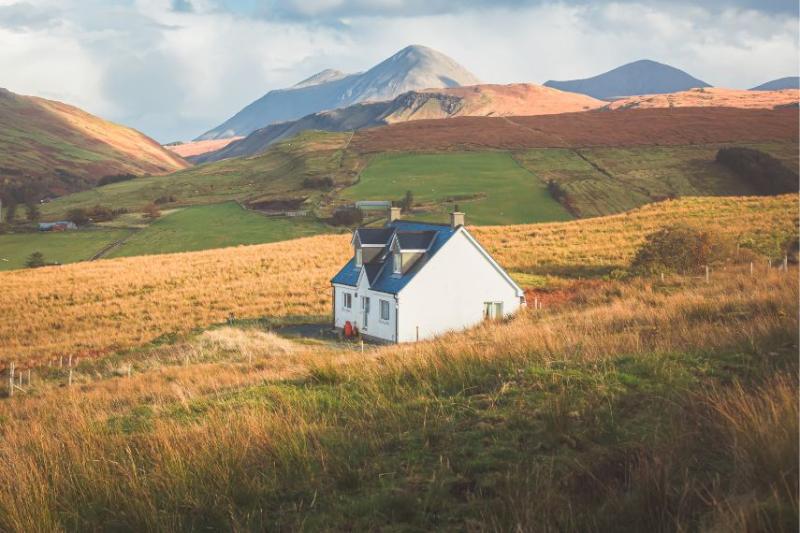If you own more than one property, it’s essential you understand your specific home insurance needs

Owning a second home can be great, whether it’s a holiday home, a flat in the city or a rental property, an extra home is often a bonus. However, insuring multiple properties can be a bit of a headache as different types of buildings require different types of home insurance.
Second home insurance: how do I go about it?
Your insurance policy may change depending on the type of property you need to insure. Here are some of the most common.
- A flat: If you own a leasehold flat you probably won't need buildings insurance as it's normally covered by whoever owns the building. It may be the case you’re paying towards this cover through your monthly service charge. You may want contents insurance to protect all the possessions in your home
- Rental properties: Insuring a property you're not living in? you’ll need special cover for things such as loss of rent and accidental damage by tenants. Check out Admiral Landlord Insurance
- Listed buildings: If you live in a house with historical significance, it may be listed as Grade I, II or III and these types of properties can come with big responsibility. You could face certain restrictions such as how you repair any damage, so you’ll need a specialist listed building home insurance policy. We do cover Grade II listed properties (but not Grade II*) so it’s important to speak to your home insurer
- Non-standard homes: We’re becoming more creative in the homes we choose to live in. Perhaps you’ve constructed an unusual house (such as timber frame) or you've got a thatched roof - you'll quite likely need non-standard home insurance. We cover hundreds of non-standard construction homes so give us a call to see if we can cover yours.
Can I insure my holiday home?
As long as your holiday home is in the UK, is only used by you, your friends and family and you’re not receiving any profit from allowing people to use the home then it’s more than suitable for our standard Home Insurance – you could even add it on to your existing Admiral policy for a MultiCover discount.
Because holiday homes are often empty for long periods of time, insurers may view it as a bigger risk. At Admiral, we can cover your holiday home if it’s left empty for up to 120 days, depending on the level of cover that you select – we may need to add extra terms and conditions to your policy if you are leaving the holiday home empty for more than 60 days.
My home is in a high-risk area – do I need a special policy?
If you live in an area that's particularly at risk of damage from floods or subsidence, you may have particular needs from your insurance. Take a look at Admiral Flood Insurance for cover for your home and possessions.
How can I insure multiple properties?
Insuring multiple properties may sound complicated but it should really be no different to insuring just one home – you’ll just need to give us a bit more information. If you insure with us you can speak directly to one of our advisors to confirm the details of each property.
That’s useful in any case, because speaking over the phone can be the best way to get the best deal and the right cover for your needs - you’ll benefit from our expertise and customer service as we take you through all the options and suggest the best one for you.
Will I need separate policies?
The good news is that when you speak to Admiral, you can package all these properties into the one policy – not just for your home but also for your car. Our MultiCover policy means you can insure your homes and cars under one policy and you’ll only have one renewal date. That means you’ll only have to arrange insurance once a year!
MultiCover saves you time and effort. There’s no need for separate details for each car and each property – they can all come under one roof, with a single payment and a single renewal date.
When transferring to MultiCover, you don’t have to cancel any existing policies. Let’s say the home insurance on your main property ends today, but you have a flat and a holiday home that aren’t due for renewal for a couple of months. We can start the insurance for that main property and then bring those additional properties in as they reach their renewal date. There’s no risk of doubling up on insurance.


